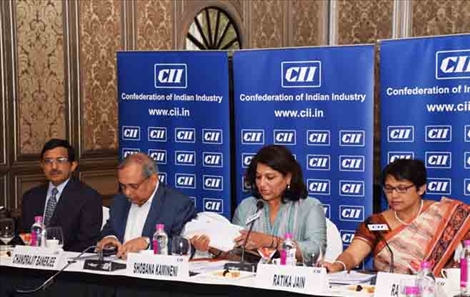RCEP: India Inc. against quick elimination of duties

The Hindu | 23 July 2017
RCEP: India Inc. against quick elimination of duties
by Arun S
India Inc. is learnt to be opposed to the Indian government committing itself to eliminating, within a short duration, tariffs on goods as part of the ongoing negotiations involving 16 Asia Pacific nations, including India and China, for a mega Free Trade Agreement (FTA).
The local industry is slated to convey on July 25 to the Indian team of negotiators their reservations against any binding commitment to immediately eliminate duties on most traded goods, as part of the FTA officially known as the Regional Comprehensive Economic Partnership (RCEP), sources close to the development told The Hindu.
The domestic industry will also inform the Indian government of their worries regarding the RCEP potentially leading to a surge in goods from China, owing to the possibility of nil duties, and will demand a longer ‘phasing out period’ — meaning, time frame to eliminate duties on the goods traded with China.
Technical level talks on the proposed RCEP are being held here, and this round is being considered critical as the 16 countries have to make “revised tariff reduction offers”, the sources said.
The Indian industry delegation — meeting the Indian government team for a 90-minute stakeholders’ feedback — include those from sectors such as steel, IT services, pharmaceuticals (including generic medicines), dairy industry, automobiles, chemicals, textiles and petrochemicals. There will be around 20 companies including the Tata Group, Aditya Birla Group, Jubilant, Amul, Mahindra, Reliance Industries and Mylan, as well as industry bodies including the CII (for all sectors) and SIAM (automobiles), the sources said.
At the Hanoi round of talks, though countries including China had sought elimination of tariffs on 92% of the traded items, India did not go beyond its offer of zero tariffs on 80% of the items (with a 6% deviation on some items), official sources had said earlier. They added that the implementation period that India has offered is 15 years for items from most RCEP countries, but a longer time frame of 20 years for other nations including China. In return for this offer, India had sought greater market access for its services, including easier norms for professionals to move across borders for short-term work. However, most RCEP nations are reluctant to offer much in this regard, the sources said.
The Indian government had asked the local industry bodies including the CII to hold consultations and come up with some areas where India Inc. has “offensive interests” — meaning, where it needs greater access in the markets in the other RCEP countries. This was to be part of the negotiation strategy as India could then offer lower duties on some items in return for other countries lowering duties on the products where India Inc. has “offensive interests.”
However, the sources said, irrespective of their strengths and weaknesses, most of the local companies only informed them of their "defensive interests” — or, in other words, the sectors — including steel, agriculture and chemicals — that they need protection through high duties.
This has been informally conveyed to the Indian government, which is now understood to be finding it difficult to make a decision on India’s ‘offensive interest’ areas. However, some segments (finished goods) in the engineering goods sector and textiles might find a place in the list of items where India will seek greater market access in the other RCEP nations.





